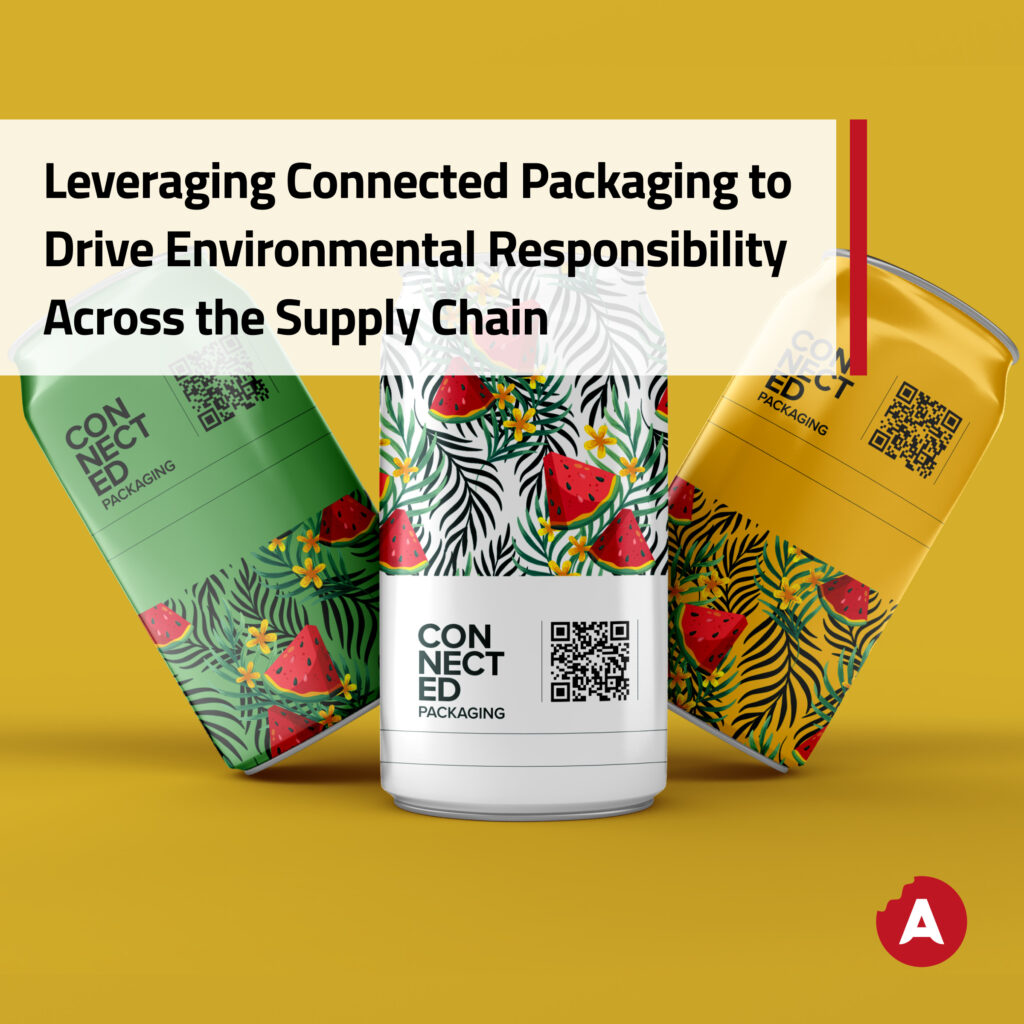
We live in an era where environmental sustainability is paramount and the FMCG industry is continiuously embracing innovative solutions to reduce its ecological footprint. One such breakthrough is the integration of smart packaging technologies, often referred to as connected packaging, to not only enhance consumer experiences but also to foster environmental responsibility across the supply chain. In this article, we will explore how leveraging connected packaging can be a game-changer in scaling sustainability initiatives within the FMCG sector.
Smart Packaging and Environmental Responsibility:
Connected packaging, also known as intelligent packaging, introduces a new dimension to sustainable practices. By incorporating technologies such as augmented reality packaging and QR code advertising, companies can engage consumers in eco-conscious initiatives. A connected package professional plays a pivotal role in implementing intelligent packaging solutions that prioritize sustainability.
QR Code Marketing and Gamification:
One of the key features of connected packaging is the use of QR codes for marketing and engagement. QR code ads on packaging serve as a bridge between consumers and sustainability information. Through gamification marketing and playable ads, companies can turn the act of scanning a QR code into an interactive and educational experience. This not only promotes brand loyalty but also educates consumers on the environmental efforts of the company.
The Role of Smart Packaging Companies:
Collaborating with a smart packaging company becomes crucial for FMCG brands looking to integrate connected packaging solutions seamlessly. These companies specialize in developing and implementing intelligent packaging strategies that align with sustainability goals. By utilizing their expertise, FMCG professionals can ensure a smooth transition to smart and intelligent packaging practices.
Connected Packaging Solutions for a Greener Future:
Connected packaging solutions offer a range of benefits that contribute to environmental responsibility. These include:
- Traceability and Transparency: QR packaging enables consumers to trace the journey of a product, from its origin to the shelf. This transparency fosters trust and allows consumers to make environmentally conscious choices.
- Reducing Waste: Smart packaging can facilitate efficient inventory management, reducing the chances of overproduction and minimizing product waste. This is a critical step towards a more sustainable supply chain.
- Educational Campaigns: QR code marketing can be employed to run educational campaigns on recycling and sustainable practices. By scanning a code, consumers gain access to valuable information on how to properly dispose of packaging materials.
Essentially, as the FMCG industry strives for greater sustainability, connected packaging emerges as a powerful tool to drive environmental responsibility across the supply chain. With the expertise of connected package professionals and smart packaging companies, brands can seamlessly integrate intelligent packaging solutions. By leveraging technologies like augmented reality packaging and QR code advertising, FMCG professionals can not only enhance consumer engagement but also create a positive impact on the planet. As we navigate the future, the marriage of sustainability and connected packaging promises a greener, more responsible tomorrow.
